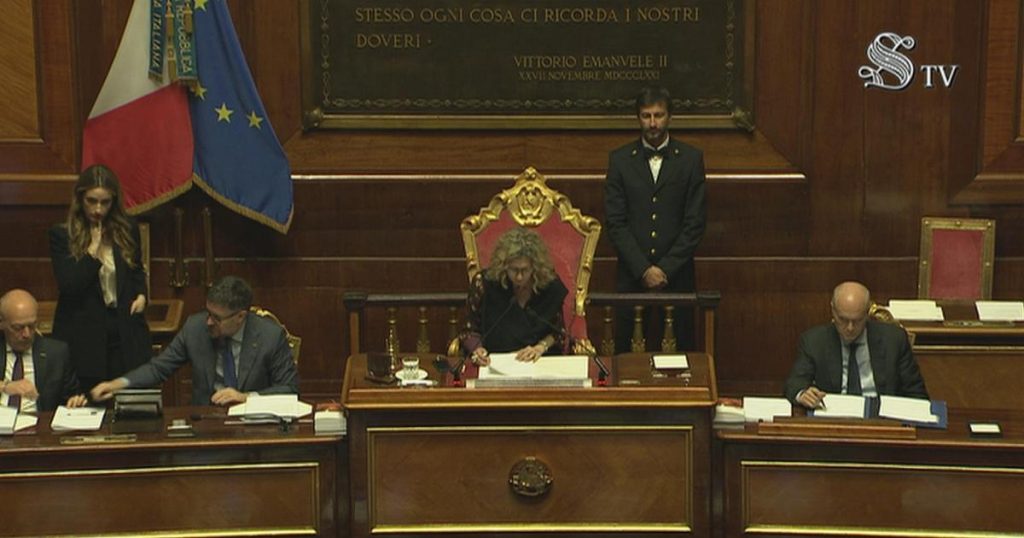The Senate Constitutional Affairs Committee has approved the constitutional reform of the premiership after five months of work. The text was approved with the favorable votes of FdI, FI, Lega, and Autonomies, while Pd, M5s, and Avs voted against it and Italia viva abstained. The rapporteur Alberto Balboni has been given the green light to report in the Chamber. The Conference of group leaders will now have to schedule the measure in the Chamber. M5s’s Alessandra Maiorino argued that the reform was a threat to the constitutional architecture without offering an alternative. Fi’s Daniela Ternullo supported the reform, stating that it gives power back to citizens and prevents political games.
The Pd’s Andrea Giorgis announced their opposition, claiming there was no real merit-based discussion and accusing an acceleration of work without considering their proposals. The election of the Chambers following the premier’s election was criticized for changing the nature of the Constitution and Parliament. Giorgis argued that it marked the end of a parliamentary Republic and urged the Government to stop and open a discussion with constitutionalists. Iv’s Dafne Musolino abstained, acknowledging the need for direct election of the premier but criticizing the lack of balance and attention to other necessary aspects in the reform, such as the voting system.
The Lega’s Daisy Pirovano expressed support for the reform, stating that there is room for improvement in the Chamber and reassuring that opposition concerns will be taken into account. She emphasized that if the reform aims at restoring dignity to politics, the Lega will vote in favor. Earlier, Fdi’s Marco Lisei and Autonomies’ Meinhard Durnwalder declared their support for the reform, while Avs’ Peppe De Cristofaro expressed opposition. The discussion highlighted the controversy surrounding the reform and the differing opinions among political parties on its implications for the Constitution and governance.
The debate reflected deep divisions between supporters and opponents of the constitutional reform, with concerns raised about its impact on the democratic process and the balance of power. Critics argued that the reform threatened the plurality envisioned by the Constitution’s founding fathers and undermined the principles of representative democracy. Proponents, on the other hand, defended the reform as a means to empower citizens and curb political maneuvering in favor of more transparent and accountable governance. The outcome of the vote revealed the complex dynamics within the Senate and the challenges of finding consensus on crucial constitutional matters.
Moving forward, the reform will proceed to the Chamber for further discussion and possible amendments. The ongoing dialogue between the government, majority, and opposition parties will be crucial in shaping the final version of the reform and addressing the concerns raised during the Senate’s deliberations. The outcome of the reform’s implementation will have far-reaching implications for Italy’s political landscape and governance structure, underscoring the importance of a thorough and inclusive decision-making process. As the Chamber takes up the debate, the focus will shift to reconciling divergent views and interests in order to chart a path forward that best serves the interests of the Italian people and the principles of democratic governance.


